
Ukrainian surgeons perform unique operations on wounded at frontline
Lviv surgeons, including vascular surgeon Taras Kobza, are achieving a success rate of over 90% in unique surgical operations on wounded soldiers at the front. Recently, Dr. Kobza and his team successfully rescued a soldier with injuries to the carotid arteries
Espreso provides insights into the remarkable work of these dedicated surgeons.
In the challenging conditions of the front lines, Lviv doctors have established facilities for performing highly complex surgical interventions on the heart and blood vessels. Dr. Taras Kobza, a vascular surgeon and senior doctor in the surgical department, is actively involved. Working in a field hospital in eastern Ukraine during Russia's full-scale war against Ukraine, he and his team have performed 300 arterial operations with a remarkable success rate exceeding 90%, even in cases of heart injuries.
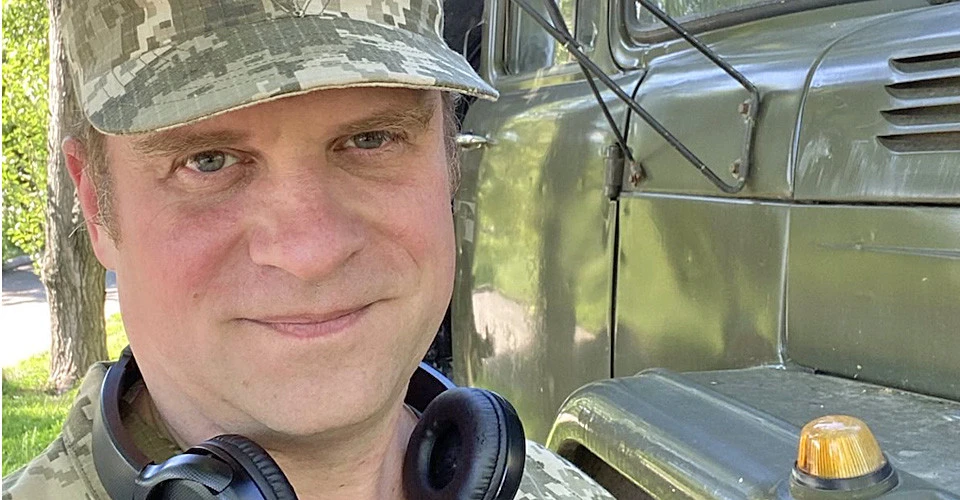
Photo: Taras Kobza's archive
"If the patient makes it to the operating room alive, their chances of survival are very high," explains Taras Kobza. "We've seen to this, we engage volunteers, and we're successful. We use portable lighting, quality machines, and unique equipment. Take, for instance, the pocket ultrasound — it's something I had always wished for. Now, I have an ultrasound machine that fits in a pocket and sends images to a mobile phone. One of our recent acquisitions is a hemodialysis machine. We're working to prevent kidney failure in patients. Everyone heard that tourniquets are known for causing military personnel to lose limbs. It's all about time. The guys are great, after getting injured they apply tourniquets to save lives, but what's next is crucial—the proper hourly loosening of the tourniquet. Restoring blood supply to the limb allows us to keep it alive until reaching the operating room. This device allows us to deviate from strict instructions for immediate amputations, as reintroducing blood to a severely damaged limb could endanger the patient's life. Having such equipment enables us to take calculated risks."
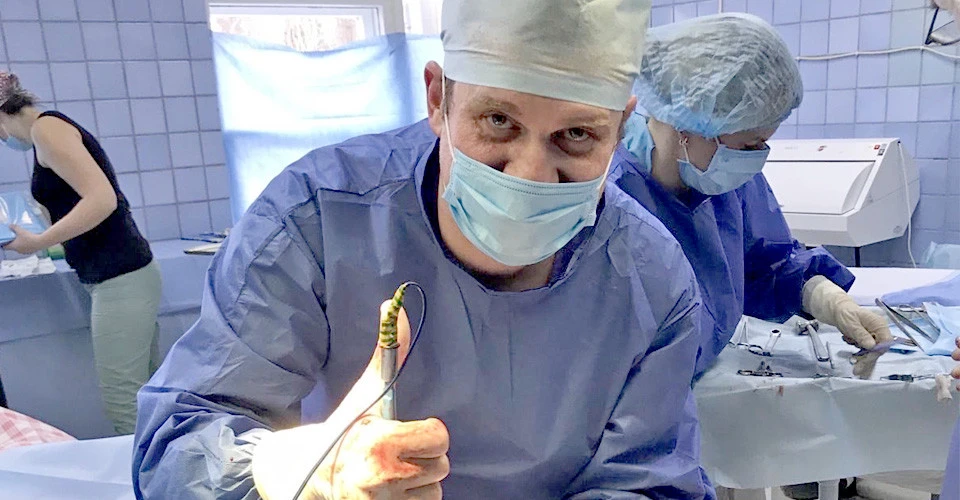
Photo: Taras Kobza's archive
Saving soldiers with carotid artery injuries
Taras Kobza, a seasoned doctor and vascular surgeon at Lviv Regional Clinical Hospital since 2005, holds a Candidate of Medical Sciences title. Engaged in the country's pivotal events, he actively participated in the Orange Revolution and the Revolution of Dignity. During the Maidan protests, he performed surgeries on the wounded on Hrushevskyi Street. When Russian forces entered the east, Kobza voluntarily enlisted in the army, focusing on rescuing soldiers in Ilovaisk, where a substantial number faced severe injuries.
"When the Crimea invasion started, I knew it was a significant challenge. However, as the continental invasion reached Donbas, there was no turning back. War is war. I presented myself to the military commissar, using my own vehicle. That's how I began my service. In the Anti-Terrorist Operation (ATO) zone, we underwent a month of training in the field. Towards the end of August, I and a group of fellow doctors were dispatched to reinforce various sectors. My assignment took me to the military hospital in Dnipro, where we received wounded from Ilovaisk. The soldiers were in critical condition. It was an unexpected challenge. Helicopters transported them; I recall three helicopters landing in Dnipro. About 70 individuals were transported in one go. They were lying down or sitting, but they were transported. It all appeared like a horrible disaster to us at that time.”
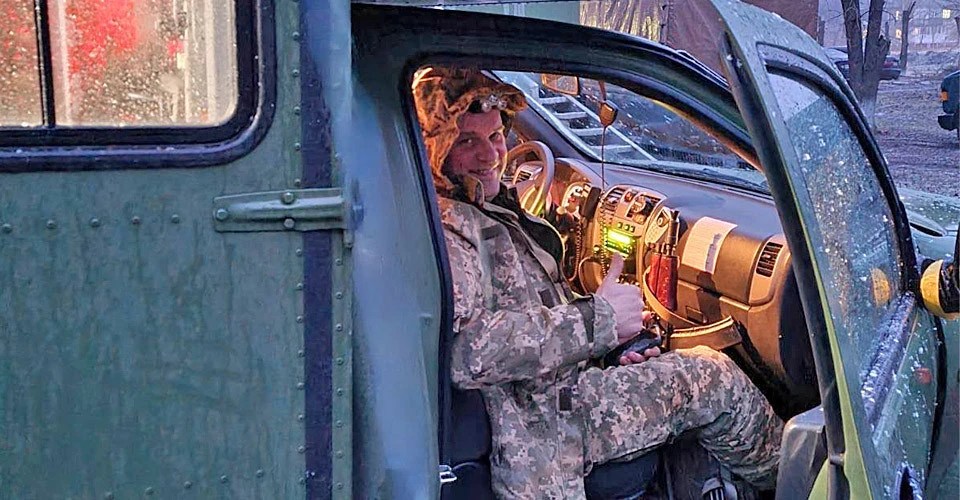
Photo: Taras Kobza's archive
In 2015, Taras Kobza suffered a spinal injury and went through rehab before returning to his job at the hospital. When the first Russian rockets hit on February 24, he immediately returned to the front. While his service location remained the same, the number and type of injuries changed significantly. On the second front line, doctors are now performing unique reconstructive operations, specifically restoring blood vessels.
"We have these cases where everything falls into place, and they're long-awaited. Patients often arrive in a state of narcotic sleep. Neck injuries, especially to the carotid artery, are extremely serious and often fatal. Our brain relies on these carotid arteries to function. We've managed to save soldiers with such injuries," emphasizes Taras Kobza. "Recently, there was a unique case where not just the carotid artery was damaged, but the point where three carotid arteries merge. It's a critical juncture supplying blood to the face, eyes, and brain. All three vessels were torn off, causing arterial bleeding from all sides. It was a challenging situation, but we reached, clamped, and sewed up all three arteries. Days later, we learned the soldier was conscious and doing well; he's undergoing rehabilitation at a hospital in Dnipro."
Fortunately, we didn't have to sacrifice any patients
Taras Kobza emphasizes the significance of having specialized surgeons in the second line, especially since the military doctrine doesn't account for roles like vascular or cardiac surgeons near the battlefield. Currently, only two surgeons can handle vascular operations simultaneously, but the patient load often exceeds their capacity.
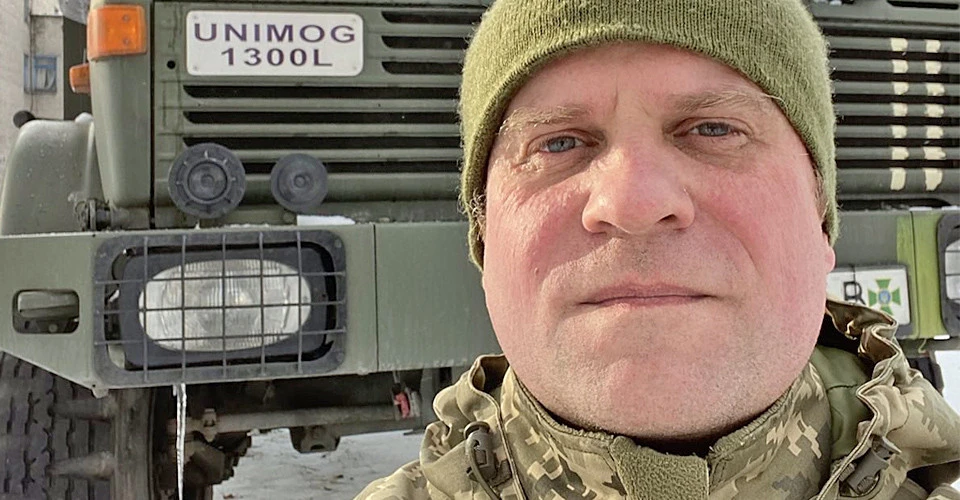
Photo: Taras Kobza's archive
"Many surgeons lack expertise in vascular anastomosis, a critical skill when dealing with vessels as small as three millimeters. Suturing must maintain patency, even if the vessel is barely visible. For a vascular surgeon, this isn't a significant challenge. We prioritize based on chances of survival—my approach may seem cynical, but it aligns with the military perspective. I assess who has the better chance. If restoring a limb seems more probable for one patient, they go first. I can finish sooner and attend to the one with lower chances. It's crucial, as prolonged complex surgeries can worsen the condition of those who were in a more or less stable condition. Sometimes patients are waiting for subsequent procedures. But fortunately, we haven't had to sacrifice any patients," clarifies Taras Kobza.
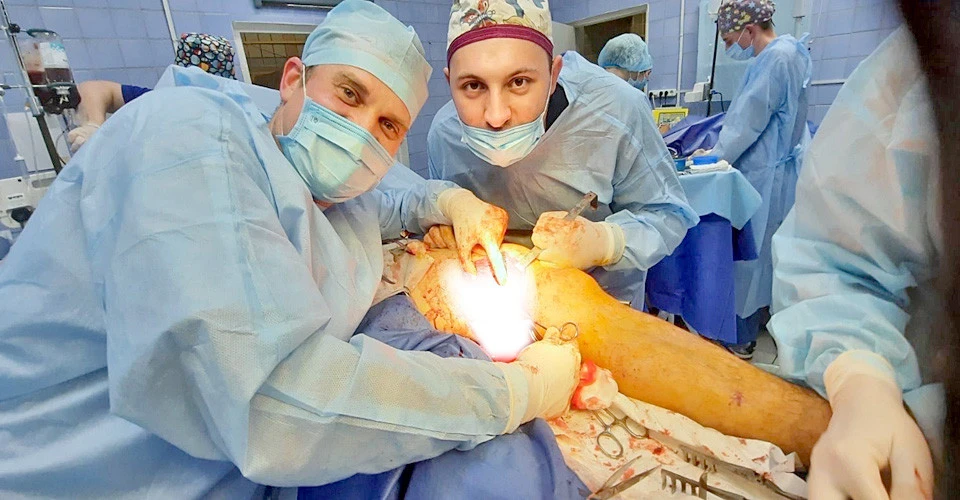
Photo: Taras Kobza's archive
In the field, frontline surgeons operate swiftly. Procedures that would take hours in a regular hospital are completed here within minutes. Taras Kobza holds the personal best of restoring blood supply in just 35 minutes. The goal is to act rapidly and effectively, aiming to save as many lives as possible among our defenders.
- News














































